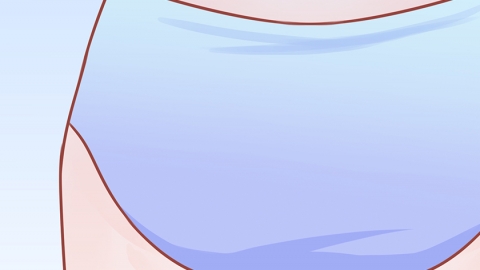What causes pimples, hard lumps, and itching on the vulva?
Generally, the occurrence of hard, itchy pimples on the vulva may be caused by improper hygiene, clothing friction, folliculitis, vulvitis, genital herpes, or other reasons. If discomfort occurs, it is recommended to seek timely medical treatment at a formal hospital. Specific explanations are as follows:
1. Improper Hygiene
The vulvar area contains many sweat glands. If daily cleaning is not timely or thorough, secretions and sweat may accumulate on the skin surface, irritating the local skin and causing pimples, hard lumps, and itching. Wash the vulva daily with warm water to keep it dry and clean, and avoid using harsh soaps or cleansing agents during washing.
2. Clothing Friction and Irritation
Wearing tight-fitting or synthetic clothing frequently can cause repeated friction on the vulvar area and impair local ventilation, leading to skin damage and symptoms such as pimples, hard lumps, and itching. Switch to loose, breathable cotton clothing to reduce friction and irritation on the vulva.

3. Folliculitis
Bacterial infection of hair follicles in the vulvar area can cause folliculitis, presenting as red papules or hard lumps in the affected area, accompanied by itching and pain. Under a doctor's guidance, apply antibacterial medications such as mupirocin ointment, fusidic acid cream, or clindamycin gel to the affected area.
4. Vulvitis
Infection by pathogens or irritation from chemical substances or secretions can cause vulvitis, resulting in pimples and hard lumps on the local skin, accompanied by symptoms such as itching and swelling. Under a doctor's guidance, topical medications such as metronidazole gel, clotrimazole cream, or erythromycin ointment can be used for treatment.
Caused by herpes simplex virus infection, the virus invades the mucous membranes and skin of the genital area, causing clusters of small blisters locally, which may develop into hard lumps, accompanied by significant itching and pain. Under a doctor's guidance, antiviral medications such as acyclovir cream, penciclovir cream, or famciclovir tablets can be used.
In daily life, maintain a light diet and avoid excessive consumption of spicy or irritating foods; increase physical exercise to enhance immunity; if symptoms worsen or persist without improvement, seek medical attention promptly for follow-up.





